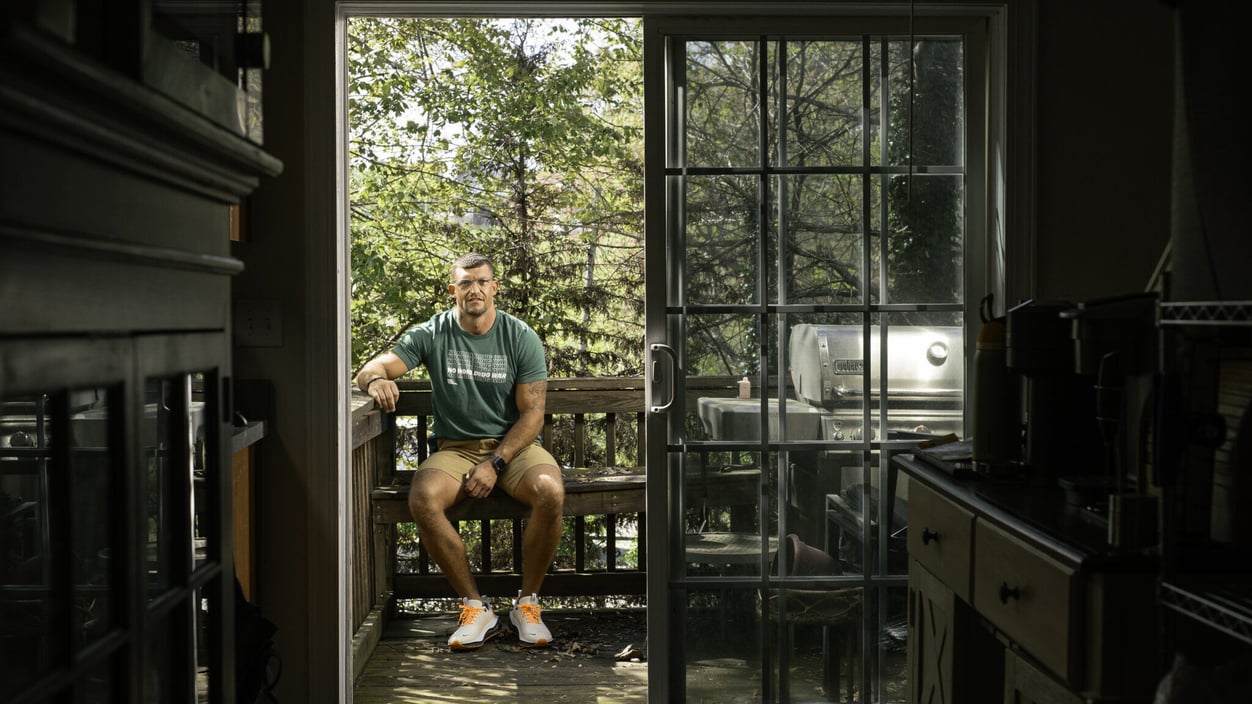a stat investigation
Why is the opioid recovery community hostile to life-saving medications?

Mike Belleme for STAT
There is a common saying in 12-step recovery circles: "There is no easier, softer way." The idea is that recovery from addiction requires sacrifice. But when it comes to opioids, there actually is an easier, softer way. Medications like methadone and buprenorphine are the gold standard for opioid addiction. They're cheap and easy to distribute. But in programs like Narcotics Anonymous, they're completely prohibited.
In Part 5 of his War on Recovery series, STAT's Lev Facher reports on how thousands of the programs and institutions that claim to offer refuge from opioid addiction are among those most hostile to these life-saving medications. In dozens of interviews, former Narcotics Anonymous participants and residents of sober living homes, detox facilities, and rehab centers describe how they've been forced to choose between basic medicine or a supportive community.
Mark Palinksi, pictured above, said that his first time taking buprenorphine was "the best [profanity] feeling I've ever felt in my life." He credits the medication with saving his life, but that didn't matter to leaders at an NA meeting where Palinksi pushed back on the idea that somebody taking this medication wasn't truly "clean." "Three people came up to me and said: You're going to walk out, and you're not coming back here," Palinski remembers.
Read more from Lev about how recovery groups offer rejection instead of refuge, and catch up on the whole series here.
one small number
1%
From a study published yesterday in JAMA, that's the percentage of people who purchased flavored nicotine vape products online and then had their ID scanned by delivery personnel to verify their age — a step that has been required by federal law since 2020.
That 1% was out of 105 completed deliveries, most of which involved no interaction with drivers whatsoever. The same 2020 law that required age verification also barred the use of the U.S. postal system to ship vape products. And yet 81% of packages came through USPS, while others came through couriers that have their own corporate policies restricting the shipment of tobacco.
The study took place in just one U.S. county — San Diego — but the authors note that "its tobacco control ordinances are some of the strongest in the country." And this is when I remind you about the classic video where former STAT reporter Nick Florko and multimedia icon Alex Hogan bought a dozen illegal products, including vapes, right in the FDA's backyard.
health tech
Generative AI is already in hospitals
OpenAI, the company behind ChatGPT, didn't set out to tackle health care. But despite ongoing concerns about its technology's tendency to hallucinate, the tech is already being used in hospitals, pharma, and cancer care. Early adopters told STAT's Mohana Ravindranath that they're careful not to let it dispense medical advice directly to patients — rather, they're harnessing its ability to draw from disparate data sources to generate coherent responses in narrowly-defined settings like summarizing medical records, suggesting treatment plans, or distilling medical jargon into plain language.
Famously, early versions of the generative AI model were known to fabricate information and present it convincingly. But it's improved dramatically, Othman Laraki, chief executive at Color Health, told Mohana. Read more in STAT+ about what OpenAI's contracts with health companies look like, and what's next for AI in health care.


No comments